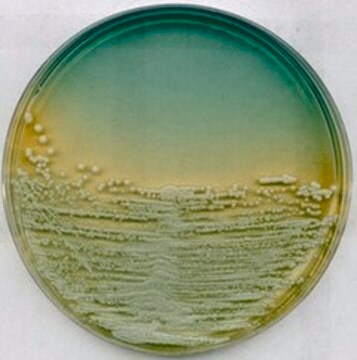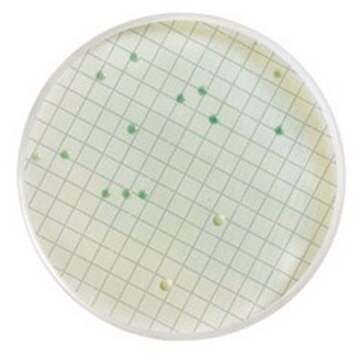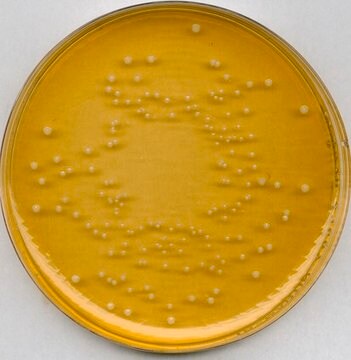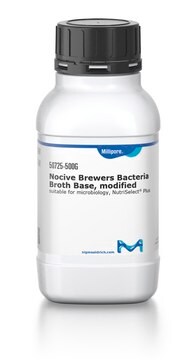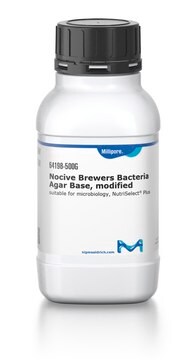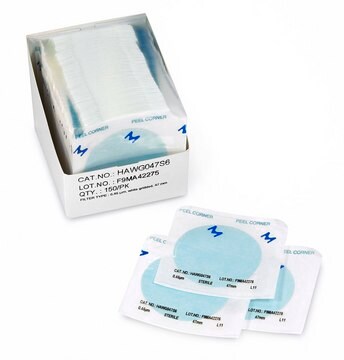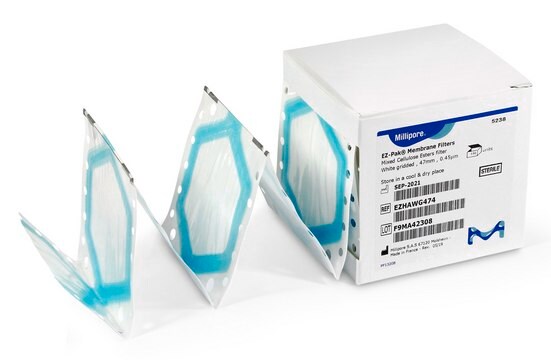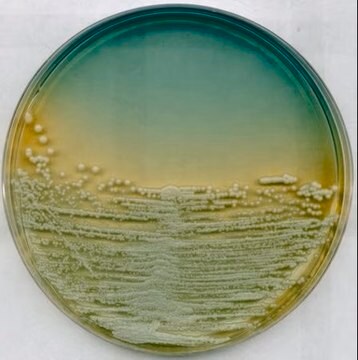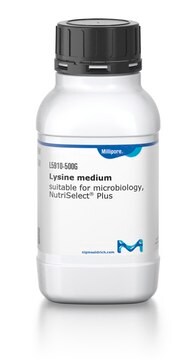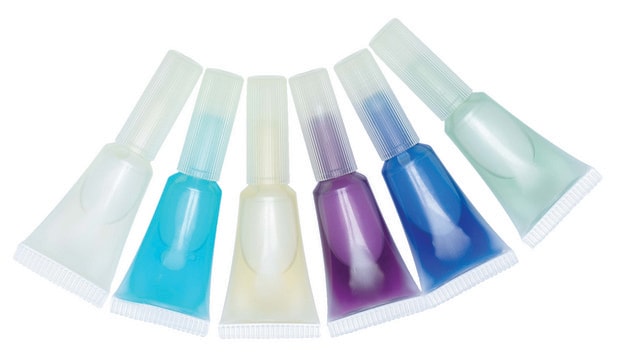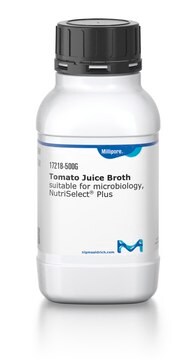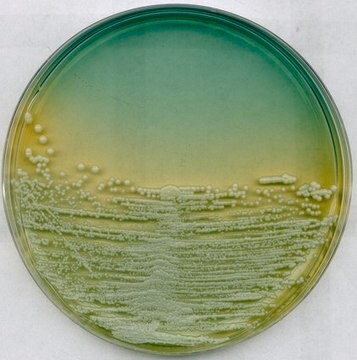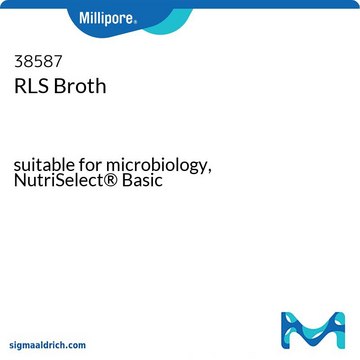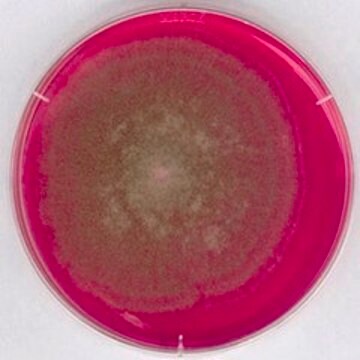17226
Uniwersalny agar piwny
suitable for microbiology, NutriSelect® Plus
Synonim(y):
UB Agar, UBA medium
About This Item
Polecane produkty
sterylność
non-sterile
Poziom jakości
Formularz
powder
okres trwałości
limited shelf life, expiry date on the label
skład
agar, 12 g/L
dextrose, 16.1 g/L
dipotassium phosphate, 0.31 g/L
ferrous sulfate, 0.006 g/L
magnesiumsulfate, 0.12 g/L
manganese sulfate, 0.006 g/L
monopotassium phosphate, 0.31 g/L
peptonized milk, 15 g/L
sodium chloride, 0.006 g/L
tomato juice, 12.2 g/L
yeast extract, 6.1 g/L
producent / nazwa handlowa
NutriSelect® Plus
opakowanie
pkg of -500 g
metody
microbiological culture: suitable
pH końcowe
6.3±0.2 (25 °C)
Zastosowanie
bioburden testing
food and beverages
microbiology
przydatność
Acinetobacter spp.
Pediococcus spp.
selective for Candida spp.
selective for Escherichia coli
selective for Lactobacillus spp.
selective for Pichia spp.
selective for Proteus spp.
selective for Saccharomyces spp.
selective for Zygosaccharomyces spp.
selective for coliforms
Opis ogólny
Zastosowanie
Uwaga dotycząca przygotowania
Przypis
The designations basic, plus, or prime are added to indicate the quality control level, from basic quality control to standard QC plus to prime for full regulatory compliance.
Informacje prawne
Kod klasy składowania
11 - Combustible Solids
Klasa zagrożenia wodnego (WGK)
WGK 3
Temperatura zapłonu (°F)
Not applicable
Temperatura zapłonu (°C)
Not applicable
Wybierz jedną z najnowszych wersji:
Masz już ten produkt?
Dokumenty związane z niedawno zakupionymi produktami zostały zamieszczone w Bibliotece dokumentów.
Klienci oglądali również te produkty
Produkty
Molecular biology-based methods, like PCR, can be used for lactobacilli detection.
Tradycyjne metody opierają się na morfologii, metodach barwienia, reakcjach enzymatycznych (metabolizm) i różnych mediach.
Traditional methods are based morphology, staining methods, enzyme reactions (metabolism) and diverse media.
Today, diverse studies report the benefits of probiotics, such as inhibitory effects on pathogens, aid in the management or prevention of chronic intestinal inflammatory diseases or atopic syndromes, and support to the immune system. Potential beneficial applications abound, researchers continue to evaluate the effictiveness and clarify the mechanisms of action of probiotics.
Protokoły
Techniki hodowli drożdży: Systemy modelowe do badań eukariotycznych z płynnymi pożywkami lub wzrostem na płytkach agarowych.
Nasz zespół naukowców ma doświadczenie we wszystkich obszarach badań, w tym w naukach przyrodniczych, materiałoznawstwie, syntezie chemicznej, chromatografii, analityce i wielu innych dziedzinach.
Skontaktuj się z zespołem ds. pomocy technicznej